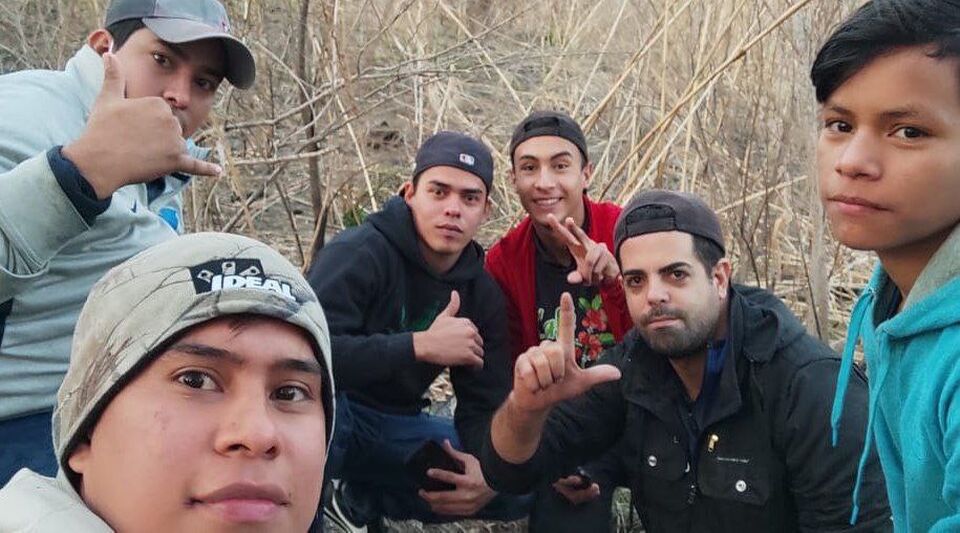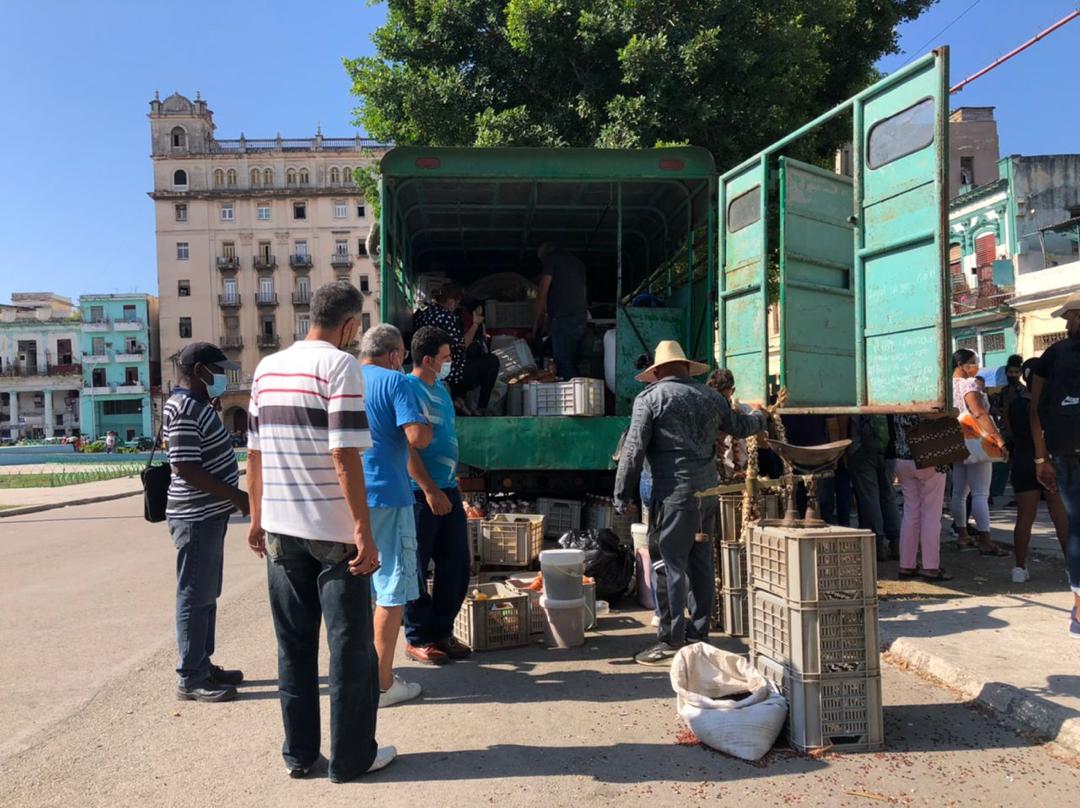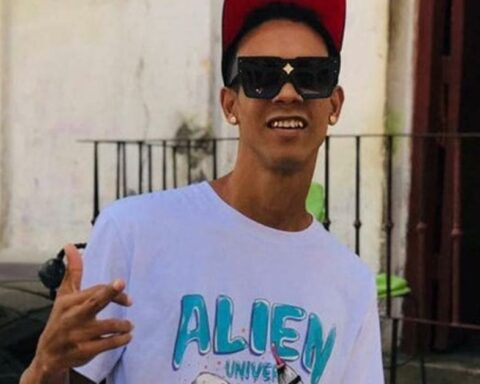The conditions of that prison were not bad, as I said, but you could also play Parcheesi, dominoes, chess, soccer or basketball. We became a huge, multinational family.
One of the Cubans who impressed me the most was a guy from Villa Clara who sold everything to be able to leave. He worked with the province’s Fund for Cultural Assets, but he was self-employed. He did restoration works in the theaters, in the houses of culture, and they paid him millions of dollars. He told me that the level of corruption in the Cultural Center, at least in the municipality of Santa Clara, is immense. But then things got bad and covid was the final seal.
The man was never interested in politics or the situation in the country, because he says that there were months in which he earned thousands of dollars. He built a mansion for himself, houses for the whole family, raised pig farms… He had a lot of money and sold it all, although he didn’t tell me a figure.
I also talked to a guy, Richard, who was a cook in Havana. He was interested in sweets and bakery, and he always wanted to set up his own business, despite being quite young, 25 years old. An aunt of hers who lives in Houston told her: “Mijito, there you will never be anyone, come, I am going to pay you everything to set up your own candy and bread business”. He left a lot of family in Cuba and that hurt him. He had been in prison for 17 days (he was released on March 14, prison) I only three.
There was a Venezuelan who told me: “Maduro is a son of a bitch just like Fidel Castro and his entire generation.” This was one of those who in 2017 went out to protest in Venezuela against the regime there, but they harassed him so much that he ended up going to Peru. He spent four years there, and it did not go badly, but with the pandemic he lost his job and came to the United States, jumping borders from Peru.
This boy told me that the hardest part was the Darién jungle, very dangerous. In all the groups that enter, there is always a dead person, he says, and in his it was a 14-year-old boy. The boy, who could be from India, according to what he told me, slipped down a rock, hit his head and he was left right there. The parents paid some Indians from there, because the coyote he disregarded, about 5,000 dollars to be taken to Panama. And there they left them, the parents and the little deceased. After that he didn’t hear from them anymore. He says that on the trails in the Darién, if you look to the sides, there are decomposing bodies, because they cannot carry them.
You have to carry chlorine tablets to take the one from the river, but he didn’t have it and he drank it like that, without treating it. Of course, there came diarrhea and fatigue
Another thing he told me is that the water doesn’t last even a day. You have to carry chlorine tablets to take the one from the river, but he didn’t have it and he drank it like that, without treating it. Of course, there came diarrhea and fatigue. The coyote he rushed them and threatened to leave them alone. At another time, they advanced paying about 275 dollars each to cross a river, which was better to pay, he said, because the danger of dying is much greater.
After all that, he passed through Panama, Costa Rica, Nicaragua… and already in Mexico he says that he crossed it in three days. I told him that was great luck, but he denied it. They had put him in a van with a false bottom – they had a wooden floor on top where he put boxes of tomatoes, vegetables, and things like that – and they lay down below, unable to move. Sometimes it was like this 21 hours of road, with stops of up to five hours at the edge waiting for a checkpoint to leave. They urinated in a bottle that they pulled as best they could and, sometimes, it fell on them.
To top it off, it was just as hot that they suffocated as it was so cold that they froze. On one occasion, he says that he thought he was going to die because he was very sleepy and felt nothing.
There were also three Guatemalans there, a strange thing because they are deported quickly, but they had arrived in December. His group was taken and they were designated as witnesses against the coyote. After 90 days in a prison, they were transferred there and two had an open deportation order and the other did, parole, because it seems that he was the only one who spoke.
One night they came to do PCR on me and six others, and they told us to be on the lookout, in case they came looking for us. And so it was: at 4 in the morning they woke us up, they gave us breakfast in a cell and they returned the money with which we arrived, in my case 120 dollars. They also took off our prison uniform and put on the clothes we arrived in. The bad smell that those clothes brought, imagine it.
They took us to the ICE (Immigration and Customs Enforcement) department by bus, and there an officer made me sign the papers and told me not to get into trouble. After that, another bus, and there they took us to a church that welcomed us in a courtyard, sitting on chairs, where they called us one by one.
On that journey I met a Venezuelan and two Cubans. The Venezuelan left in December and was arrested in Guatemala. The coyotes They paid to release her and took her back in Mexico: 30 days in a prison in Tapachula. When she came out of it, she again she looked for someone to cross her. Total, that the family used thousands and thousands of dollars for her to arrive. She told me that she was very depressed, that if she had known about it, she would not have come out. She also told me that she would like to return to her country, but that as long as she is Maduro, she will not return.
The man asked me what was happening in Cuba, he mentioned Fidel Castro, and I told him that it was his fault that we were not free.
When you get to the church, where they gave us food and clothes, you can’t leave if you don’t have a plane ticket, so my family tried to buy me one from Laredo to Miami, but they were over $800. In normal times, I was told, that flight is in the hundred-odd dollars, so we found a solution through Houston. They took me to a bus station, where I bought a ticket to San Antonio for 59 dollars. Two older men who help immigrants were waiting for me there.
I was very moved by this, because they gave me food, toiletries, a mask and even a blanket to cover myself. I even told them to save it for someone who needed it more, but in the end I took it, because the trip was long and my flight didn’t leave until 7:30 in the morning.
The man asked me what was happening in Cuba, he mentioned Fidel Castro, and I told him that it was his fault that we were not free. He was very sympathetic. Also, I really liked San Antonio, with its huge buildings. It seemed incredible to me to be seeing so much beauty before my eyes.
Arriving in Houston, a cousin of mine who lives there found out and said she wanted to come pick me up. She took me to her house, where I ate, bathed and washed the clothes she was wearing, and at 5 in the morning they took me to the airport.
I was a bit embarrassed, because the treatment was not the same as for the rest of the passengers: they separated me from the queue, they searched me more vehemently, they took photos of me… But I was also amazed at the immensity of that place: a kilometer to my boarding gate, full of shops, people, life.
I entered the Miami airport through gate 21, and my cousin was waiting for me. I grew up with him and life separated us when he went to Spain, we were then 17 years old; then he ended up in the US Well here we are, together again.
At that moment of the embrace, of the uncontrollable tears, I began to remember how long I had spent to get to this country and I couldn’t believe that I had arrived safely, that I had arrived alive. That after so much waiting I was with my brother in this land of freedom.
I am 34 years old, completed, you know, in the dungeons of a cooler while I was detained. My closest family – my children, my wife, my parents, my grandmother – is in Cuba.
I was a cook for many years in a private restaurant in Havana, but for a long time, I have been working as a reporter for 14ymedio. I am so proud of this that I would need a whole chapter to talk about it.
My trip lasted 26 days from the time I left Havana until I arrived on US soil. It cost a total of $10,075, including plane tickets, payment to coyotes, cash to eat, etc. This money was put by a relative, to whom in due course, and when I have it, I will begin to return everything “invested” in my trip.
My cousin is a truck driver here in the US, so in a few weeks at his side I have already crossed 20 states. I have seen many beautiful things. Also other very ugly ones that I didn’t like, I suppose that happens in all countries.
Now I am discovering what it is like, seeing the lies that the official media in Cuba told us. This is a country with many objectionable things, yes, yes, yes, but it is a country where one can be free. I still haven’t adjusted to that. I still have the ghost of fear, of anxiety when I see, for example, a police patrol or a police officer approaching, because it reminds me of the repressors who do not allow us to live life.
So far my story and, well, nothing more: homeland and life. Homeland and life.
This chapter ends the series on ‘Cuba, the Island on the Run’, which we will publish later in PDF format.
________________________
Collaborate with our work:
The team of 14ymedio is committed to doing serious journalism that reflects the reality of deep Cuba. Thank you for joining us on this long road. We invite you to continue supporting us, but this time becoming a member of our journal. Together we can continue transforming journalism in Cuba.








